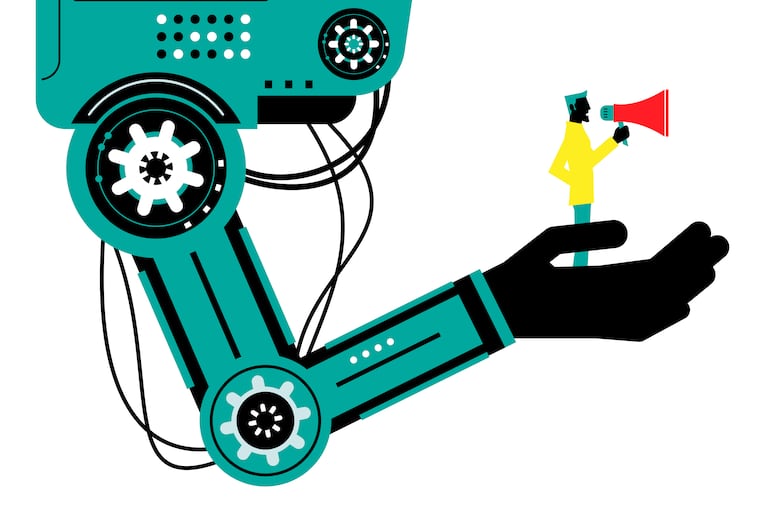Amazon unionization vote was a referendum on automation — and it’s not over yet | Opinion
Amazon may have won in Alabama, but the future of work is still human.

One of the more striking images of the last few years was that of workers outside an Amazon warehouse in Shakopee, Minn., holding signs that read: “We are not robots.” That the primary demand of the workers was to be treated not as machines, but as humans, is a symbol of the problems of the technology-enabled workplace.
The Shakopee protest, led by courageous Somali immigrants, focused on concerns at issue in Bessemer, Ala., and throughout Amazon’s empire: the pace of work and invasive monitoring and surveillance. The Bessemer unionization campaign, led by Black women, sought to give workers a greater say in how automation affects their working lives.
New digital technologies evoke futuristic images of warehouses with few workers and where machines do all the heavy lifting. Yet the application of these tools harks back to century-old engineering methods that intensified work in steel mills and auto assembly plants.
Amazon provides an early indication of how automation might change the workplace. New technologies could make manual tasks less arduous and reduce health and safety hazards. The current trajectory, however, introduces a host of ethical questions regarding the pace of work, the use of worker data, and surveillance.
The coronavirus pandemic led to a surge in online shopping and brought warehouse workers into public view. Millions of workers had little choice but to put their lives on the line, even as stay-at-home orders went into effect across the country. A recent study found that the risk of mortality due to COVID-19 for essential workers in California’s logistics sector was higher than for health-care workers and that workers of color were disproportionately hurt.
The environmental justice movement has a term for just this type of trade-off — sacrifice zone — which refers to places permanently affected by environmental degradation and disinvestment so that other places can prosper. In the logistics sector, pandemic sacrifice zones reflect a perverse trade-off between economic vitality and worker protections.
Hard-pressed to hold on to their incomes, workers have reported to workplaces with thousands of others, though in many cases they lacked necessary protection.
The pandemic, meanwhile, has been a boon for the very rich. Last week, Forbes reported that 86% of billionaires are richer today than they were a year ago. Artwork accompanying the piece depicts the triumphant faces of those whose fortunes ballooned during the public health crisis, Amazon founder Jeff Bezos at the center. Set alongside the sacrifice zones of essential workers, it is a merciless image of the contradictions of wealth accumulation and rising inequality.
With manufacturing jobs shrinking, communities across the country have turned to warehouses for new jobs, many created with public subsidies. In Pennsylvania, with interstate highways connecting the manufacturing heartland to East Coast markets, and East Coast ports to inland consumers, warehousing employment has tripled to 90,000 since 2001.
The promise of these jobs, however, is often unfulfilled. Alongside the pace of work and safety issues, and despite claims of “good jobs,” pay remains a problem — lower in 2019 (the latest data) in Pennsylvania than in 2001 — and about half what unionized steelworkers earned in 1980. To change that would require industrywide unionization.
Those concerned about inequality and racial injustice hoped that the Alabama vote would demonstrate the possibility that Amazon could be unionized. It still might.
Instead, the vote’s immediate consequence has been to educate Americans about the obstacles that impede labor organizing, especially at individual work sites in major corporations. The facility would have become an island of unionism in an otherwise nonunion company and Amazon relentlessly delivered anti-union messages throughout the campaign. Never far below the surface, workers faced the threat of reprisal.
Amazon has avoided unionization, for now. But Bessemer will not be the last attempt to organize at Amazon, or at other companies on the leading edge of reshaping work through new technologies. That the union vote even took place given the need for jobs in Alabama can be seen as a referendum on automation and the future of work. Amazon and corporate America still need to hear the rallying cry “We are not robots” and create a future of work that does not treat workers that way.
Beth Gutelius is research director at the Center for Urban Economic Development at the University of Illinois at Chicago. Nik Theodore is director of the center and a professor of urban planning and policy.